二正丁基双(乙酰丙酮基)锡, 99%,Dibutyltin bis(acetylacetonate)
产品编号:西域试剂-WR368109| CAS NO:22673-19-4| 分子式:C18H32O4Sn| 分子量:431.15
本网站销售的所有产品仅用于工业应用或者科学研究等非医疗目的,不可用于人类或动物的临床诊断或者治疗,非药用,非食用,
| 英文名称 | Dibutyltin bis(acetylacetonate) |
|---|---|
| CAS编号 | 22673-19-4 |
| 产品熔点 | 26ºC |
| 产品沸点 | 132ºC (0.4 torr) |
| 产品密度 | 1.22 g/mL at 25 °C(lit.) |
| 产品闪点 | 71.9ºC |
| 精确质量 | 432.13200 |
| PSA | 52.60000 |
| LogP | 5.04760 |
| 外观性状 | liquid | pale yellow to amber |
| 折射率 | n20/D 1.5110(lit.) |
| 稳定性 | 如果遵照规格使用和储存则不会分解 避免接触氧化物 |
| 储存条件 | 保持贮藏器密封 放入紧密的贮藏器内,储存在阴凉,干燥的地方 |
相关文档
化学品安全说明书(MSDS)
下载MSDS质检证书(COA)
相关产品
| 符号 |
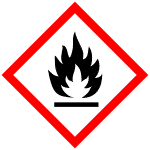
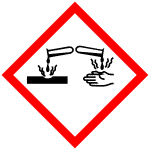
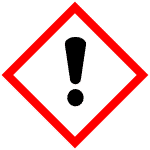
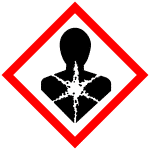
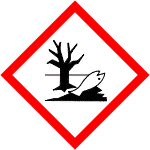
GHS02, GHS05, GHS07, GHS08, GHS09 |
|---|---|
| 信号词 | Danger |
| 危害声明 | H228-H302-H314-H317-H341-H360-H370-H372-H410 |
| 警示性声明 | P201-P210-P260-P280-P305 + P351 + P338-P308 + P311 |
| 靶器官 | thymus gland |
| 个人防护装备 | Eyeshields;Faceshields;full-face respirator (US);Gloves;multi-purpose combination respirator cartridge (US);type ABEK (EN14387) respirator filter |
| 危害码 (欧洲) | Xn: Harmful; |
| 风险声明 (欧洲) | 10-20/21/22-36/37/38-63 |
| 安全声明 (欧洲) | 16-26-36 |
| 危险品运输编码 | UN 3178 4.1/PG 2 |
| WGK德国 | 2 |
| 包装等级 | II |
| 危险类别 | 6.1 |
|
Section 1: Product Identification Chemical Name:Di-n-butyltinbis(acetylacetonate) CAS Registry Number:22673-19-4 Formula:(C4H9)2Sn(CH3COCHCOCH3)2 EINECS Number:none Chemical Family:organotin compound Synonym:Di-n-butyltinbis(2,4-pentandionate)
Section 2: Composition and Information on Ingredients IngredientCAS NumberPercentACGIH (TWA)OSHA (PEL) Title Compound22673-19-4100%0.1mg/m3 (as Sn-0.1mg/m3 (as Sn- Section 3: Hazards Identification Irritating to skin, eyes and respiratory tract. Ingestion may lead to gastrointestinal cramps, nausea and Emergency Overview: diarrhea. Primary Routes of Exposure:Ingestion, skin, eyes Eye Contact:Causes mild irritation of the eyes. Causes slight to mild irritation of the skin. Prolonged contact may dry the skin and lead to rashes or more Skin Contact: severe irritation. Inhalation:Irritating to the nose, mucous membranes and respiratory tract. Ingestion:Irritating to mouth throat and stomach. Ingestion may lead to gastrointestinal cramps, nausea and diarrhea. Acute Health Affects:Irritating to skin, eyes and respiratory tract. Chronic Health Affects:No information available on long term chromic effects. NTP:No IARC:No OSHA:No SECTION 4: First Aid Measures Immediately flush the eyes with copious amounts of water for at least 10-15 minutes. A victim will need Eye Exposure: assistance in keeping their eye lids open. Get immediate medical attention. Wash the affected area immediately with water. Remove contaminated clothing if necessary. Seek medical Skin Exposure: assistance if irritation persists. Remove the victim to fresh air. Closely monitor the victim for signs of respiratory problems, such as difficulty Inhalation: in breathing, coughing, wheezing, or pain. In such cases seek immediate medical assistance. Seek medical attention immediately. Keep the victim calm. Give the victim water (only if conscious). Induce Ingestion: vomiting if directed by medical personnel. SECTION 5: Fire Fighting Measures Flash Point:none Autoignition Temperature:not determined Explosion Limits:not determined Extinguishing Medium:dry chemical, carbon dioxide, water spray or foam. If involved in a fire, fire fighters should be equipped with a NIOSH-approved positive pressure self-contained Special Fire Fighting Procedures: breathing and full protective clothing. Hazardous Combustion andcarbon dioxide, carbon monoxide, soot, organic fumes and tin compounds. Decomposion Products: Unusual Fire or Explosion Hazards: No unusual fire or explosion hazards. SECTION 6: Accidental Release Measures Small spills can be absorbed into vermiculite or other suitable adsorbent. Larger spills must be contained in Spill and Leak Procedures:order to avoid contamination of the soil, sewers systems or bodies of water. Absorb the material into clay, sawdust or other suitable adsorbent. SECTION 7: Handling and Storage Handling and Storage:Store in a cool, dry, well-ventilated area away from heat and direct sunlight. Keep containers tightly sealed. SECTION 8: Exposure Controls and Personal Protection Always wear safety glasses. If pouring or transferring this substance wear a face shield for additional Eye Protection: protection. Skin Protection:Wear protective clothing and gloves. Consult with glove manufacturer to determine the proper type of glove. Ventilation:Work with this product in a well-ventilated area, preferably a fume hood. If ventilation is not available a respirator should be worn. The use of respirators requires a Respirator Respirator: Protection Program to be in compliance with 29 CFR 1910.134 Ventilation:Work with this product in a well-ventilated area, preferably a fume hood. Additional Protection:No additional protection required. SECTION 9: Physical and Chemical Properties Color and Form:pale yellow to amber liquid Molecular Weight:431.16 Melting Point:26° Boiling Point:150°C /3mm Vapor Pressure:no data Specific Gravity:1.21 Odor:mild odor Solubility in Water:Decomposes in water SECTION 10: Stability and Reactivity Stability:air and moisture-stable liquid Hazardous Polymerization:no hazardous polymerization Conditions to Avoid:None Incompatibility:Strong acids, strong oxidizing agents Decomposition Products:carbon dioxide, carbon monoxide, organic fumes and tin compounds. SECTION 11: Toxicological Information RTECS Data:No specific information available in the RTECS files. Alkyltin compounds are generally considered toxic. Carcinogenic Effects:No data Mutagenic Effects:No data Tetratogenic Effects:No data SECTION 12: Ecological Information Ecological Information:No information available SECTION 13: Disposal Considerations Disposal:Dispose of according to local, state and federal regulations. SECTION 14: Transportation Shipping Name (CFR):Non-hazardous Hazard Class (CFR):NA Additional Hazard Class (CFR):NA Packaging Group (CFR):NA UN ID Number (CFR):NA Shipping Name (IATA):Non-hazardous Hazard Class (IATA):NA Additional Hazard Class (IATA):NA Packaging Group (IATA):NA UN ID Number (IATA):NA SECTION 15: Regulatory Information TSCA:Listed on the TSCA inventory SARA (Title 313):not regulated by Title 313 Second Ingredient:none SECTION 16 - ADDITIONAL INFORMATION N/A |
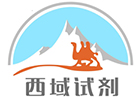
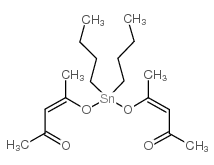
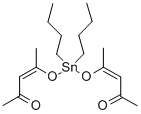






 浙公网安备 33010802013016号
浙公网安备 33010802013016号